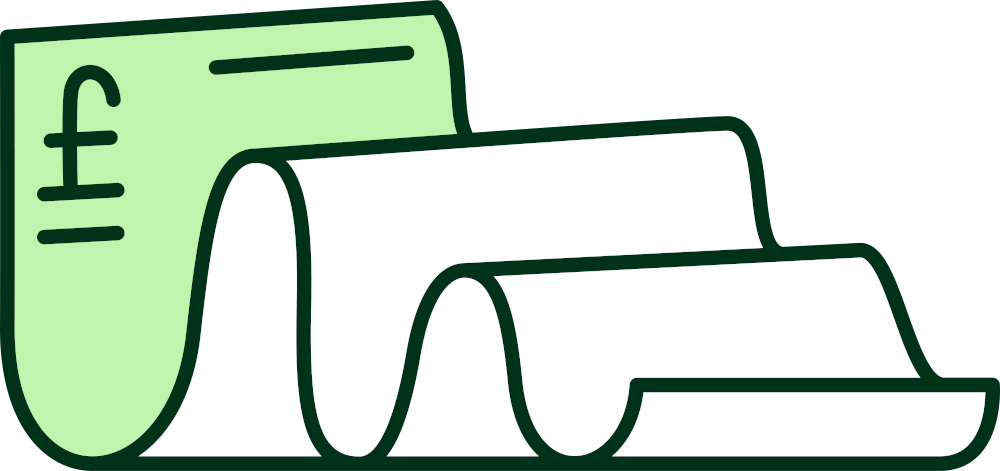I’m struggling to pay my energy bills
If you have an energy bill and you are not sure how you are going to pay, there are some things you can do:
- Submit meter readings
- Check your direct debit payments
- Tell your supplier you’re struggling to pay
- Apply to be put on the Priority Services Register
- Make an offer you can afford
- Review your agreed payment.
Help with your energy bills
Submit meter readings
Your bills are often based on estimated energy use. This might be more than you actually use. Sending up to date meter readings to your supplier regularly will make your bill more accurate. But if your readings are higher than the estimates, your bill might go up.
Check your direct debit payments
When you pay by direct debit the rate is usually set to cover your use for the whole year. You can ask your supplier how they work out your payment. They might lower it if it’s too high or if you’re paying back money you owe. If you’re repaying a debt, you can ask for a lower payment if it’s too much for you. Your supplier should look at what you can afford.
Tell your supplier you’re struggling
When you can’t pay your bill, tell your supplier right away. They might have ways to help you out. These include:
- hardship funds to help clear energy debts
- help to make your home more energy efficient
- extra help reading your meter or understanding your bill
Your supplier has to give you a free way to contact them if they know you’re having trouble paying your bill.
Apply to be put on the Priority Services Register
Energy suppliers have a Priority Services Register for vulnerable customers who may need extra help. You may be considered vulnerable if you are:
- a pensioner
- disabled or have a long-term medical condition
- experiencing mental health problems
- pregnant or have young children.
Suppliers may also add you to their register for other reasons.
If you are on the register:
- you may then get help with reading your meter or understanding your bills
- Your suppler might treat contact from you as a priority
- you may get longer notice if your supply will be affected by work on the energy network.
You can apply to be on the register by contacting your supplier.
Make an offer you can afford
Your energy bill usually needs to be paid before the next one comes. If you can’t manage this, talk to your supplier about paying what you can afford.
Your supplier should offer different ways to pay that suit you. These could be weekly, bi-weekly, or monthly. In the meantime, keep paying for what you use and anything you can towards your debt.
You can use our sample letter to help.
Review your agreed payment
If you can’t pay what you agreed with your supplier because things changed, ask them to change the plan. You can ask them to lower the payments or take a break from paying your energy debt if you can’t afford anything right now.
You can use our sample letter to help.
Prepayment meters
If you can’t pay your energy bills, your supplier might suggest a prepayment meter. This means you pay for your energy before you use it. It can also be used to pay off your debts.
Your supplier must ask if you want a prepayment meter before cutting off your energy supply. This could cost up to £150 to install.
Your supplier can’t force you to use a prepayment meter if it would be unsafe or too difficult for you or someone in your household to use. They must find a better way for you to pay off your debt.
Cutting off supply
Talk to your supplier about paying what you can towards what you owe. This will help to stop your energy being cut off. You might pay in small parts, pay directly from benefit, or get a prepayment meter.
Getting reconnected
To get your power back after it’s been cut off, you’ll need to pay what you owe plus a fee for reconnecting. You might also need to pay a deposit if you don’t want a prepayment meter.
Ask your local council if they can help you pay the reconnection fees. If you have children, ask Social Services for help too.
Complaining about your energy supplier
If you’re not happy with how your supplier has treated you, start by speaking to them to see if they can fix it. Ask for their code of practice and their complaints procedure. You will be able to find these on their website.
Other things that can help with making a complaint:
- energyadvice.scot can tell you how to make your complaint and who you should send it to.
- You can take your complaint further to the Energy Ombudsman if you are not happy with the result after eight weeks. This service is also free.
- The free service, Resolver, can help you write to your supplier and to pass your complaint on to the Energy Ombudsman.
Get the best energy deal
Energy prices are high right now, so it might be hard to save money by switching your energy plan or provider. As well as looking at prices, see how good energy companies are at helping customers.
Citizens Advice have information on comparing customer service.


